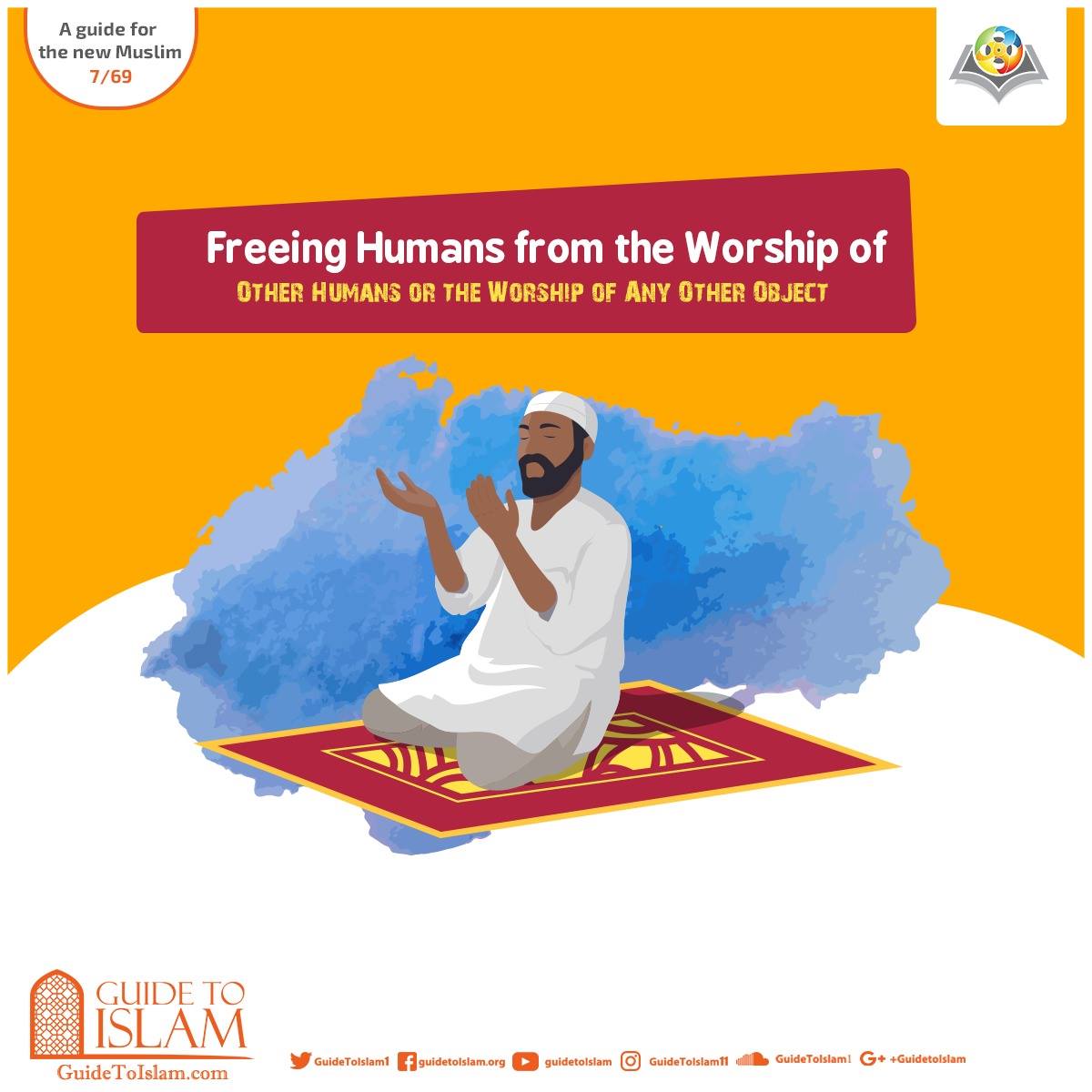Freeing Humans from the Worship of Other Humans or Object

Obviously, this is a corollary of the first principle of worshipping Allah alone. However, it deserves separate mention as humans dominating and subjugating other humans is one of the gravest tragedies in the history of humankind, second perhaps to the tragedy of the humans accepting such a situation and willingly submitting to other humans. There are few things worse than humans submitting themselves, and thus worshipping, other humans. This is completely degrading because all humans share the same essential human nature and weaknesses.
No one has the right to put himself as a God—which would include tyrant, dictator or clergy—over anyone else, with the others subjected to his decrees regardless of whether they are consistent with what Allah has revealed or not.
This goal of Islam was eloquently stated by two of the earliest Muslims. When asked by the Emperor of Persia what brought the Muslims to their lands, two different Companions of the Prophet (peace and blessings of Allah be upon him) answered in similar terms: “Allah has sent us to take whoever wishes from the servitude of mankind to the servitude of Allah and from the tightness of this world to its expanse and from the injustice of the ways of life [in this world] to the justice of Islam.”
It is interesting to note that humans readily recognize the evils of such dominance of a human over other humans when there is a tyrant ruling others but fail to realize it when a group of elites dominates them and they willingly submit to the manipulation and oppression of that elite, many times via a façade of democracy. In reality, both are evil and can only be remedied by accepting Allah alone as the Lawgiver and ultimate authority. As shall be discussed shortly, it is Allah alone who can lay down just laws and ordinances as He alone is completely free from desires and prejudice.
There are many things that humans have a tendency to “worship” or become “enslaved” to, ranging from one’s own passions, the state or nation to insignificant material wants. Allah describes those who take their own desires as a god:
Have you seen he who has taken as his god his [own] desire, and Allah has sent him astray due to knowledge [that Allah has concerning him] and has set a seal upon his hearing and his heart and put over his vision a veil? So who will guide him after Allah? Will you not then be reminded
(45:23)
The Prophet (peace and blessings of Allah be upon him) said, “May the slave of dinars, dirhams, qateefah and khameesah perish as he is pleased if these things are given to him and if not, he is displeased.” This is, in reality, a true form of slavery or servitude—a slavery to something other than Allah. Ibn Taimiyyah wrote,
“If he attains it [that is, what he desires], he is pleased and if he is unable to attain it, he becomes discontented. Such a person is the ‘abd [slave] of what he desires of these matters and he is a slave of it, since slavery and servitude are in reality the enslavement and servitude of the heart. Thus, for whatever enslaves the heart and puts it under its servitude, the heart is then a slave of that object. This is why it is said, “The slave [human] is free as long as he is content [with what Allah has given him] and the free one is a slave as long as he desires.”
Islam frees humans from all of such false forms of worship. It does this by freeing their hearts from such overriding wants and desires. It frees the heart from such worship by attaching the heart to Allah alone and building a strong relationship between the individual and Allah (as discussed later). The individual then simply wants to please Allah. Whatever is pleasing to Allah, he is happy with and whatever is displeasing to Allah, he is unhappy with.
This aspect of Islam may be very clear to a new Muslim. He may easily recognize within himself all of those false gods that he used to pursue and “worship” in his pre-Islamic days. His whole life may have revolved around those objects of worship. He would do virtually anything in pursuit of that goal regardless of whether such means were ethically sound. Those goals were what made him a person.
He evaluated his entire life in terms of those goals. If he achieved those goals, that would be his source of happiness. He was truly enslaved by those goals. Now he can understand how those goals were actually taking him away from the worship of Allah alone.

